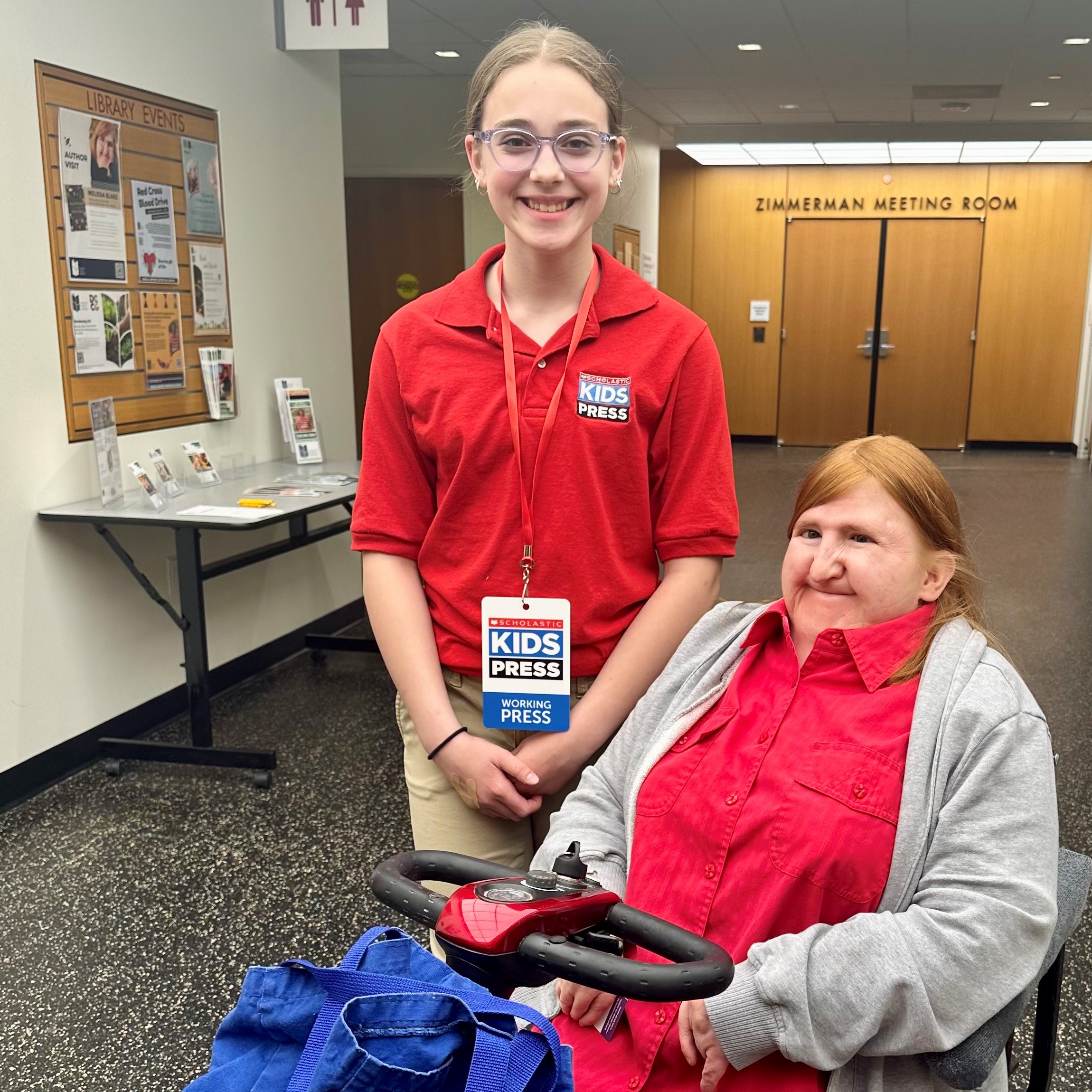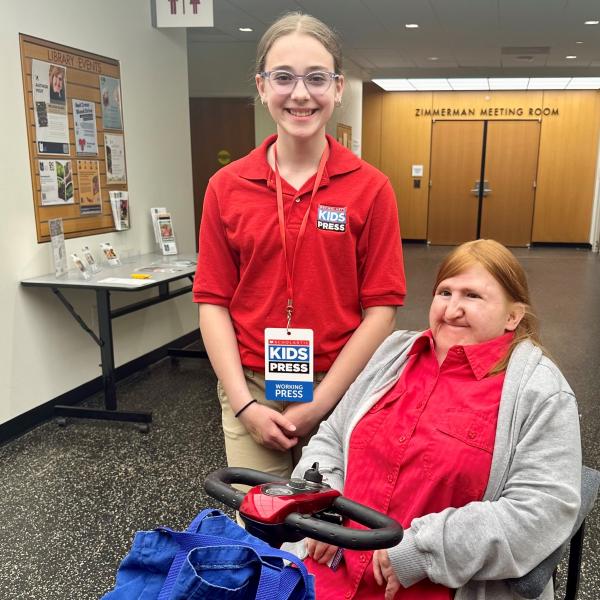KID REPORTERS’ NOTEBOOK
Advocate Raises Awareness About Life With a Disability


Evy with Melissa Blake, an advocate for people with disabilities, at the DeKalb Public Library in Illinois
Melissa Blake is a journalist, a disability advocate, and a social media influencer. She raises awareness about the difficulties that people with disabilities often face in daily life.
Blake was born with Freeman-Sheldon Syndrome. The rare genetic disorder affects the development of her bones and muscles.
On May 2, I spoke with her at the DeKalb Public Library in DeKalb, Illinois. She was there to promote her new book, Beautiful People: My Thirteen Truths About Disability (Hachette Go, 2024). The book explores what it’s like to live in a society that often defines people by their disabilities.
In 2019, Blake faced the worst of the Internet. An online commentator said that Blake should be banned from taking photos of herself and posting them. Blake decided to fight back. Every day for the next month, she posted a selfie on social media.
“Of course, I knew that posting those selfies wasn’t going to erase the nasty names I’d been called,” Blake writes in Beautiful People. “But that didn’t matter. I wasn’t doing it for them. I was doing it for me and every single disabled person who has been bullied before.”

Blake points to her new book on a shelf at the DeKalb Public Library.
FACING ABLEISM
Each chapter of Beautiful People explores a reality that Blake and others like her face in everyday life. These include the language that is used to describe people with disabilities and an overall lack of representation in popular culture.
Blake focuses on ableism, both physical and verbal. She describes physical ableism as “the discrimination of and social prejudice against people with disabilities based on the belief that typical abilities are superior.” Verbal ableism is the use of derogatory language that is directed at people with disabilities.
“I experience ableism in everything from buildings that are not accessible to the way that people view disabilities,” Blake said. “How I deal with it is, I advocate for myself. That is the biggest thing that I can do.”
